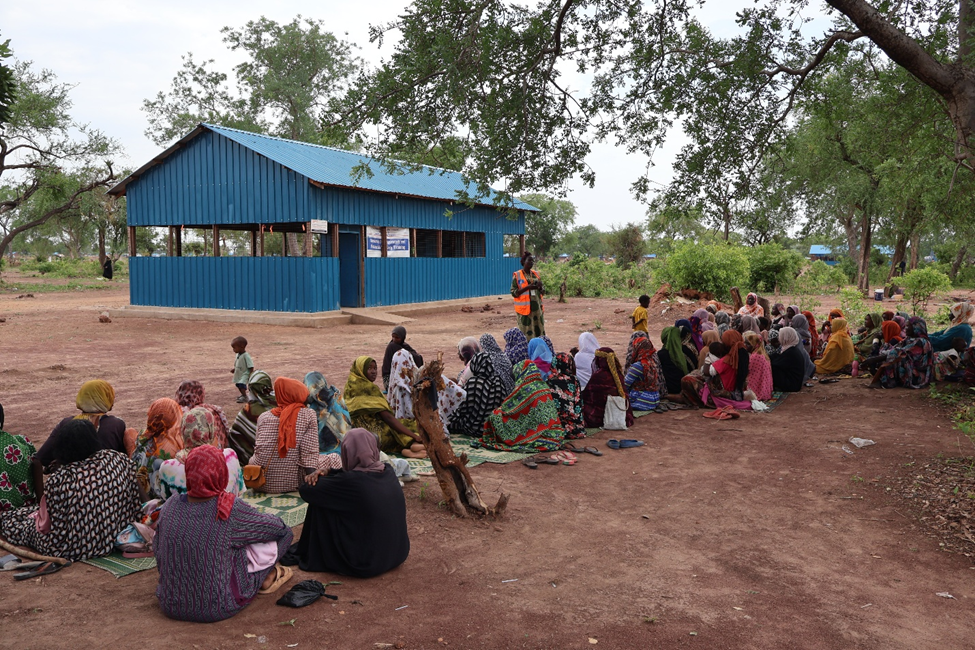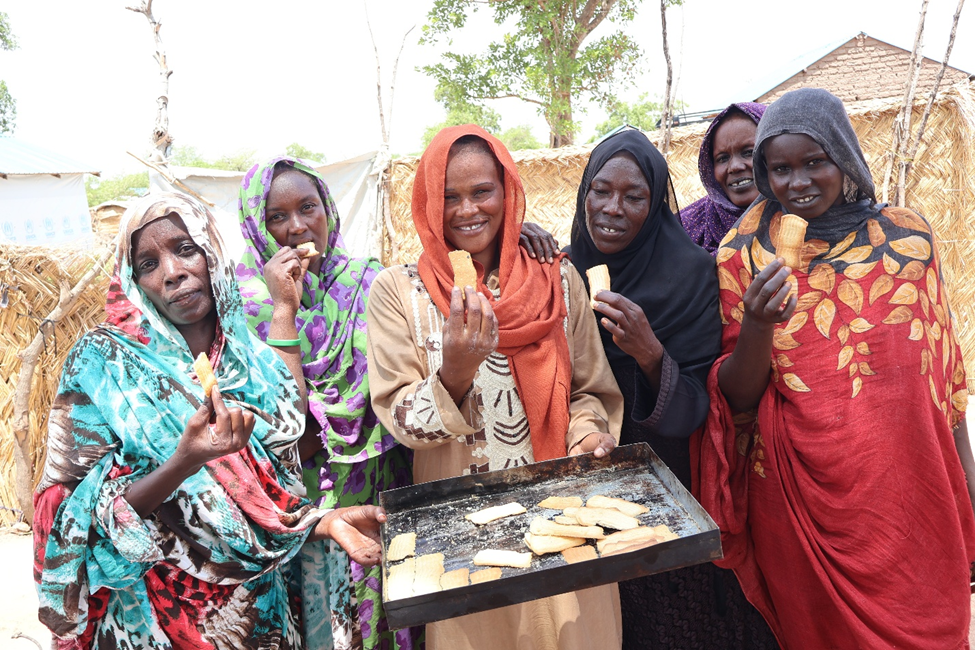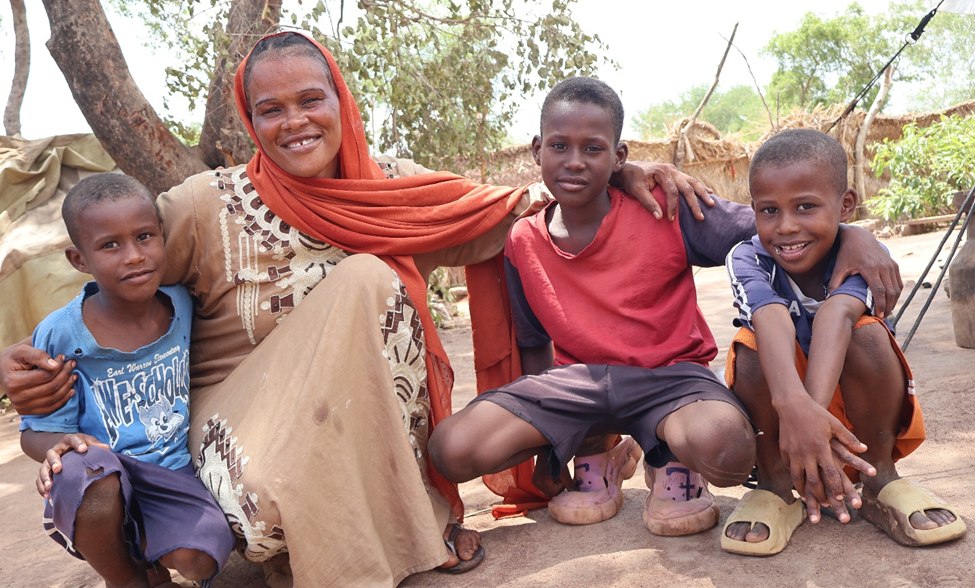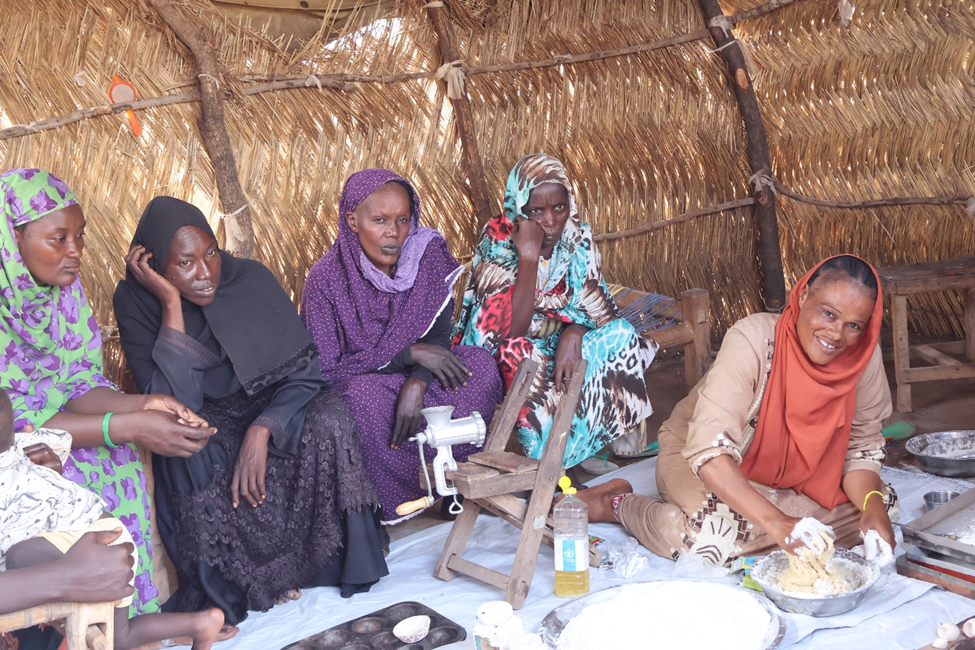Becoming a leader: Refugee mother finds voice and courage in South Sudan’s refugee camp
Abiri Athaire, a 30-year-old mother of six boys, is now a community leader in Wedweil Refugee Settlement. She leads the Awin Ya Harafat Women Group, which means "Strong Women" in Arabic. Her group is managed by strong mothers, with five members working together to support one another.
Abiri’s life at Wedweil Refegee Settlement is a stark contrast to her life in Sudan, which has been deeply shaped by her childhood experiences and social barriers that limit women’s potential. Born in Sudan, she grew up in an environment where many girls and women are denied access to education because of cultural beliefs. Because of this, Abiri completed only third grade in primary school. Her family decided she should get married at a very young age. This ruined her dreams of becoming a businesswoman. While in her country, Abiri’s husband was running a retail business, and she believed the future of her children was bright.
“Life was ‘mashallah’ back in Sudan. I was certain about the future of my children. My husband was operating a retail business and providing all that we needed to live a decent life,” she says. Mashallah means “God has willed it.” But life changed suddenly for Abiri when they had to flee Wedweil Refugee Settlement in South Sudan because of the conflict in Sudan.

Today, the settlement is home to over 25,000 people, mostly women, children and elderly. Life as a refugee is very difficult, she says. Many women, like Abiri, lack access to sufficient food, clothing, and basic necessities, such as sanitary pads. “Before coming to this centre, life was very hard for me and my children. I did not have enough food to cook for them, no clothing, and I did not even have sanitary pads for myself. I was stressed and worried about the future of my children,” she recalls.
In Sudan, girls and women often lack support to attend school or pursue their career dreams. According to Chr. Michelsen Institute, child marriage is widespread in Sudan, with Eastern states leading with 45%. Many girls are married off early, sometimes against their will, which ends their hopes of education and independence. Their dreams are also overshadowed by poverty, violence which leads to displacement (UNICEF).
Abiri’s story is just one of many. Her early marriage meant her dreams of becoming a businesswoman never came true. Things started to change for Abiri when she joined other fourth women, including two girls, at a women’s centre managed by World Vision, in partnership with UNHCR and the Commission for Refugee Affairs (CRA). Funded by the European Union, this centre provides women and girls who have been abused with free counselling services, dignity kits, training on how to start up and manage businesses, and hygiene kits to help them live with dignity and become economically self-sufficient.

The centre also conducts awareness campaigns on gender-based violence affecting women and girls, documents and manages an average of 10 gender-based violence cases on a daily basis, and refers some survivors to other partners and government institutions for legal, health, material support and protection services.
Abiri's group received bakery start-up kits, including a fuel-efficient baking stove, sugar, wheat flour, wheat flour and financial capital in the form of in-kind support that enabled them to start a group bakery business. They now bake bread, cakes, and cookies, which they sell to the refugee and host communities in Wedweil. This business has fostered peaceful coexistence between refugees and the host community. “We are now supplying the settlement with bread, cakes, and cookies.
”With the bakery business, I can buy my children balanced meals, exercise books, clothing, and extra food to supplement what is given by the World Food Programme. I am also considering expanding this business once we divide our savings,” Abiri explains.
Abiri is grateful for the support, and she hopes that more young mothers like her can receive the same support, enabling them to stand strong and support their families. “We are grateful for the start-up kits. My prayer is that such support is given to other women in our community so they can stand strong like us,” she says.

She also requests additional training in skills such as tailoring, hairdressing, bedsheet knitting, and other crafts, so women can learn new ways to earn money. Abiri’s story demonstrates how economic empowerment and hope can transform the lives of women and children, even in the most challenging times. But with the current funding cut, the future remains uncertain for many women and girls in Wedweil Refugee Settlement who have not yet received such support.
Maria Deng, Protection Project Manager, highlights, “We see many women crossing the border daily with children. Some have lost their husbands in Sudan, while others are uncertain of their husbands’ whereabouts. Many arrive with critical medical conditions and multiple urgent needs. As World Vision, we identify these women and provide them with basic services, training, and tools to help them start anew. However, the needs remain overwhelming.”
Maria also emphasises the challenges faced by humanitarian organisations. “Because of funding cuts, many partners have ceased operations in the settlement, creating a significant gap in support. While we are working together with UNHCR to address these needs, our resources are limited, and we cannot meet all the needs of women and girls.”
